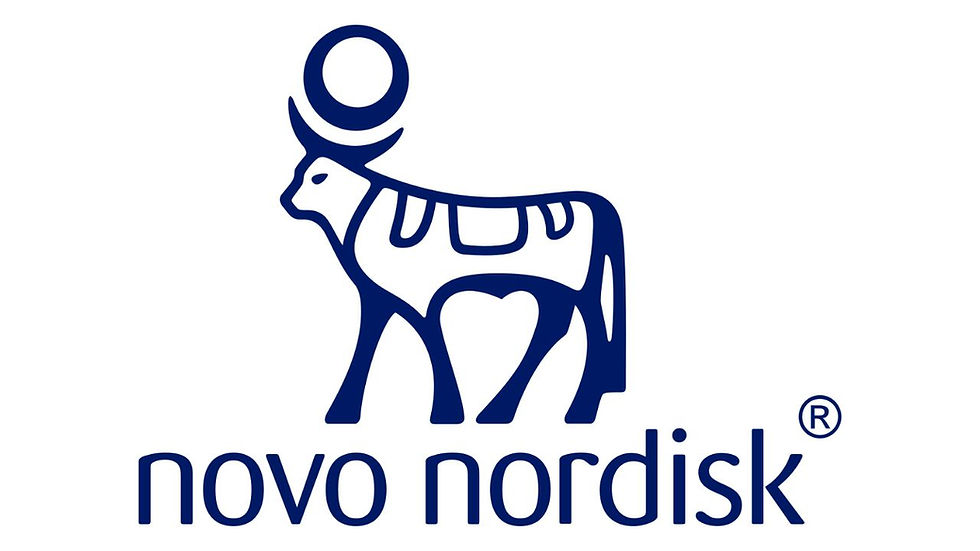From Factory Floor to Global Goals: How Wegovy’s Production Aligns with the UN’s SDGs
- AJ Hill Aesthetics

- Jul 25, 2025
- 3 min read
The United Nations’ Sustainable Development Goals (SDGs) are often talked about in the context of governments or large-scale humanitarian work. But they’re just as relevant in the private sector—especially in industries that sit at the intersection of health, environment, and global supply chains.
Pharmaceuticals are a good example. The way medications are made, distributed, and used touches on everything from energy use and labor practices to access to care. That’s why more pharmaceutical companies are being asked: Do your practices reflect the world we’re all trying to build?
In the case of Wegovy—produced by Novo Nordisk—the question is timely. With global demand rising, the company has the opportunity (and responsibility) to show how medical innovation can align with broader sustainability and ethical goals.
Which UN Goals Are Most Relevant?

There are 17 Sustainable Development Goals in total, but a few stand out as especially relevant when it comes to the production and distribution of Wegovy:
Goal 3: Good Health and Well-Being At its core, Wegovy supports this goal by addressing obesity—a chronic condition that impacts quality of life and long-term health. Access to effective treatment plays a key role in managing this growing global concern.
Goal 9: Industry, Innovation and Infrastructure Novo Nordisk’s investments in clean energy and efficient production technology speak to this goal, as the company works to improve how treatments are made and delivered.
Goal 12: Responsible Consumption and Production This is where most environmental sustainability efforts fall—waste reduction, recyclable packaging, and energy-efficient manufacturing. It’s also one of the trickiest goals to consistently meet in pharma.
Goal 13: Climate Action With commitments to reduce carbon emissions and use 100% renewable electricity at its production facilities, Novo Nordisk is actively trying to lessen the climate impact of making products like Wegovy.
While not all aspects of Wegovy’s supply chain can yet be called sustainable, these focus areas suggest a company trying to move in the right direction.
What Novo Nordisk Has Committed To

Novo Nordisk has publicly aligned its sustainability strategy with the SDGs, with particular attention to SDG 3, 12, and 13. The company’s broader sustainability report outlines several commitments that influence how Wegovy—and its other pharmaceutical products—are made:
Achieving net-zero emissions by 2045, including emissions from the supply chain and transportation
Transitioning to fully recyclable, compostable, or reusable packaging by 2030
Continuing the use of 100% renewable electricity at all production sites, a goal already met across facilities globally
Working with suppliers to embed sustainability and ethical labor practices at all stages of production
Specific to Wegovy, progress has been made on packaging reduction and cold-chain shipping efficiency, as well as pilot programs for proper disposal and recycling of single-use injection pens.
Progress reports are released annually and include carbon reduction benchmarks, energy use figures, and sustainability ratings from external evaluators. While not always broken down by product, these reports offer insight into company-wide performance and goals that clearly affect Wegovy’s production.
What the Experts Think
Sustainability experts generally view Novo Nordisk as one of the more progressive players in the pharmaceutical space—particularly in how transparently it communicates its goals and shortcomings.
“Compared to many competitors, Novo Nordisk shows a strong alignment with SDGs in both word and action,” says environmental governance analyst Lucia Grant. “But there’s still a need for more product-level data—especially in high-impact medications like GLP-1s.”
Experts also note the importance of third-party evaluations and certifications. While internal sustainability goals are helpful, independent audits carry more weight in terms of accountability and trust.
Grant points out that as more pharmaceutical companies align with SDGs, comparison becomes easier—and pressure to improve will likely follow. “We’re seeing a slow shift from general commitments to very specific product-level targets,” she adds. “That’s the next step for a company like Novo Nordisk if they want to lead by example.”
What Comes Next
Aligning with the SDGs isn’t a one-time decision—it’s an ongoing process. And for a product like Wegovy, that process means continuously asking how each part of the supply chain, production process, and patient experience can be improved.
As demand for GLP-1 medications continues to rise globally, the stakes get higher. Sustainable production doesn’t just protect the environment—it protects trust. It ensures that solutions for one health problem aren’t causing new ones elsewhere.
With new facilities, packaging upgrades, and emissions tracking underway, Novo Nordisk seems positioned to deepen its alignment with the SDGs. But long-term progress will depend on how those plans hold up across diverse markets, especially where regulatory support for sustainability is still catching up.
Building Health Shouldn’t Come at Nature’s Expense

If you’re someone who thinks about the bigger picture—the systems behind your healthcare, the values behind your treatment—you're not alone. And asking how your medication fits into the world’s future is a valid, even necessary, question.
Want help understanding what sustainability really looks like in pharma?
We can talk you through the real-world impact of treatments like Wegovy—from emissions and packaging to long-term corporate responsibility.






Comments